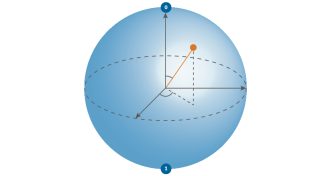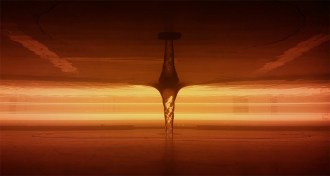Physics
Sign up for our newsletter
We summarize the week's scientific breakthroughs every Thursday.
-
 Quantum Physics
Quantum PhysicsChina’s quantum satellite adds two new tricks to its repertoire
Satellite performs quantum teleportation and securely transmits encryption keys.
-
 Archaeology
ArchaeologyPin-drop test pops Greek amphitheater’s acoustic claims
Analysis of an ancient Greek amphitheater’s ability to carry sounds reveals overblown tour guide claims.
-
 Science & Society
Science & SocietyDive deep to discover unexpected connections
Readers often praise Science News for its brevity. But some ideas need more space, writes acting editor in chief Elizabeth Quill.
-
 Planetary Science
Planetary ScienceReaders intrigued by Mars’ far-out birth
Readers sent feedback on the Red Planet's formation, jumping genes and more
-
 Quantum Physics
Quantum PhysicsA quarter century ago, the qubit was born
The invention of the qubit a quarter century ago enabled the quantum information revolution.
-
 Physics
Physics50 years ago, a millionth of a degree above absolute zero seemed cold
Today, scientists have reached temperatures less than a billionth of a degree above absolute zero.
-
 Quantum Physics
Quantum PhysicsQuantum computers are about to get real
Qubit-based machines are gearing up to solve problems that are out of reach for even the most powerful supercomputers.
-
 Physics
PhysicsHere’s why your wheelie suitcase wobbles
Physicists explain why roller suitcases rock back and forth as you dash through the terminal.
-
 Astronomy
AstronomySatellite trio will hunt gravitational waves from space
The European Space Agency has green-lighted the Laser Interferometer Space Antenna, expected to launch in 2034.
-
 Quantum Physics
Quantum PhysicsQuantum satellite shatters entanglement record
A satellite sent entangled particles to two Chinese cities 1,200 kilometers apart.
-
 Physics
PhysicsWater circling a drain provides insight into black holes
Water waves scattering off a vortex can exhibit rotational superradiance, an effect predicted to appear in black holes.
-
 Physics
PhysicsFaux particles commit physics faux pas
Quasiparticles present in a solid material break the rules of particle physics.